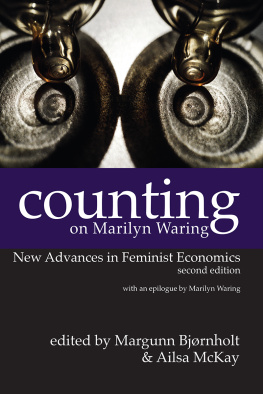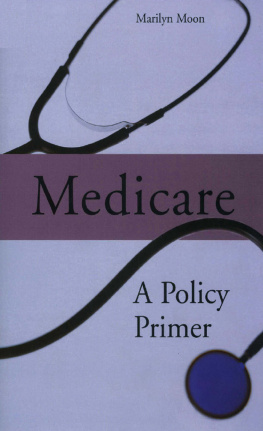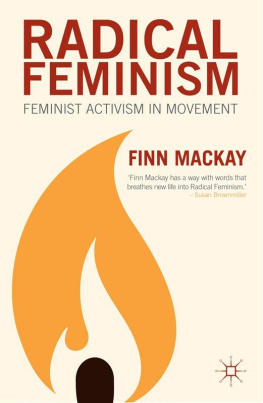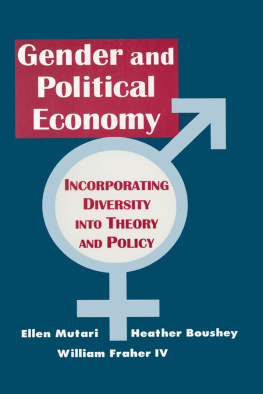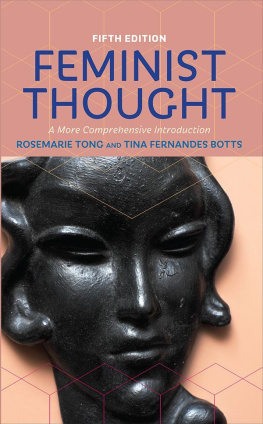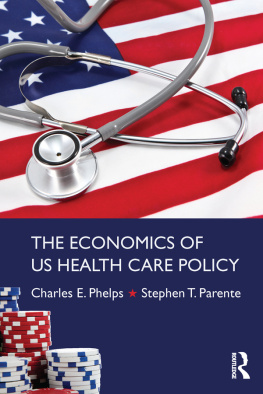Counting on Marilyn Waring
Counting on Marilyn Waring
New Advances in Feminist Economics Second Edition
Edited by
Margunn Bjrnholt & Ailsa McKay
Copyright2014 Demeter Press
Individual copyright to their work is retained by the authors. All rights reserved. No part of this book may be reproduced or transmitted in any form by any means without permission in writing from the publisher.
Demeter Press logo based on the sculpture Demeter by Maria-Luise Bodirsky < www.keramik-atelier.bodirsky.de >
Cover image by Shira Richter
eBook development: WildElement.ca
Printed and Bound in Canada.
Library and Archives Canada Cataloguing in Publication
Counting on Marilyn Waring : new advances in feminist economics / edited by Margunn Bjrnholt and Ailsa McKay.
(Second Edition)
Includes bibliographical references.
ISBN 978-1-926452-02-9 (pbk.)
1. Feminist economics. 2. Waring, Marilyn, 1952-. I. McKay, Ailsa, 1963 2014 editor of compilation II. Bjrnholt, Margunn, 1958-, editor of compilation
HQ1381.C66 2014 330.082 C2013-908300-6
Demeter Press
140 Holland Street West
P. O. Box 13022
Bradford, ON L3Z 2Y5
Tel: (905) 775-9089
Email: info@demeterpress.org
Website: www.demeterpress.org
Table of Contents
In Memory of Ailsa McKay
MARGUNN BJRNHOLT AND MARILYN WARING
THE PUBLICATION of this book very sadly coincided with Ailsa McKays untimely death. The joy at its favourable reception, leading to a second edition, is mixed with grief. Regrettably Ailsa is not with us to enjoy the positive response to the book and the interest it has generated in feminist economics in different parts of the world.
Ailsa often told the story of our meeting in Toronto, at a conference a few years ago. It was one of those occasions in life when you meet someone with whom you can talk in shorthand and not have to explain all the herstory of what goes into any comment at that moment, and this began a very special friendship. We both benefited in different ways from her generosity of spirit towards other academics. We loved her passion, her humour and her vision, her warmth and honesty, and her feisty nature, making conversations with her funny and cathartic and healing.
Ailsa made a remarkable contribution to the field of feminist economics, as well as to the Scottish society and to the world, literally making women count, through her combination of academic work and an active role in society. She was a founding member of the Scottish Womens Budget Group, which was founded around her kitchen table, later growing into an influential voice listened to by successive Scottish Finance Ministers and by others.
Ailsa taught us through her life that economics and politics are not separate. She was incessantly campaigning for including gender into economic models and analyses, as well as for welfare reform, properly funded free universal childcare, and a citizens basic income for all all as means to build a different and more caring world. Even in the last months, while enduring treatment and pain, Ailsa was working with her colleagues to provide the evidence to ensure that ignorance would no longer serve as an excuse of the gender pay gap and the heavy incidence of austerity and welfare cuts on women.
Her impressive record of influencing policy and practice include serving as a consultant to the Scottish Parliament, the Irish Government, the UK Treasury, and the United Nations Development Programme, and as an expert witness to governments. She was also a founding member of the EuropeanGenderBudgetNetworkandaboardmemberoftheJimmyReid Foundation as well as a chairperson of the European chapter of the International Association for Feminist Economics (IAFFE).
Wefeelprivilegedthatwegottoknowherandwefeelhonouredtohave called her our colleague and friend.
Oslo and Auckland
Margunn Bjrnholt and Marilyn Waring
21 July 2014
Foreword
JULIE A. NELSON
IN 1988, when Marilyn Warings groundbreaking book came out, I was a youngAssistantProfessorataUnitedStatesuniversity. Justbeginning myownworkonfeministeconomics, Icouldcountononehandthe number of people I had found who had ever put those two words together in the same sentence. You can imagine how pleased I was to see that someoneon the other side of the world, no lesshad authored a book on If Women Counted: A New Feminist Economics .
Marilyn Warings work woke people up. She showed exactly how the unpaid work traditionally done by women has been made invisible within national accounting systems, and the damage this causes. Her bookas the present volume attestsencouraged and influenced a wide range of work on ways, both numerical and otherwise, of valuing, preserving, and rewarding the work of care that sustains our lives. By pointing to a similar neglect of the natural environment, she also issued a wake-up call to issues of ecological sustainability that have only grown more pressing over time. In recent decades, the field of feminist economics has broadened and widened to encompass these topics and more. Marilyn Waring received a standing ovation at the 2006 International Association for Feminist Economics conference in Sydney, Australia.
Is her work still relevant? Sadly, yes. I was vividly reminded of this just weeks ago whennow, as a considerably older economics professorI was called to the bedside of my dying sister. A single dose of her last chemotherapy treatmentcost about the sameas a prettynice new car, but, with powerful insurance and pharmaceutical companies running our U.S. healthcare system, her health plan paid this in full. On the other hand, the hospice care her health plan provided depends heavily on unpaid family caregivers to keep costs down, and carefully rations the provision of home health assistance to a few hours a day, and no more.
Chemicals still count in a way that care does not. We need the essays in the current volume to inspire further action to set things right.
Julie A. Nelson
Boston, Massachusetts
September 2012
Acknowledgements
WE ARE BOTH EXTREMELY grateful to all those who responded to the initial call for papers and we are only too sorry we could not include all the proposed contributions. We are especially grateful to MIRCI and Demeter Press for supporting this publication and indeed for the range of work they continue to support in the fields of unpaid care work and mothering. In finalising this collection for publication we found ourselves recounting our personal experiences of meeting with Marilyn and sharing conversations with her. For both of us a particularly memorable occasion was in October 2012. Colleagues of Marilyns at AUT hosted and organised a celebratory event entitled Womens Leadership: The Political, The Personal, The Passionate, and The Phenomenal. An Event to Celebrate Marilyn Warings 60th Birthday. We were both fortunate enough to be invited to participate in that event providing testimony as to the influence of Marilyns teachings and writings on the international academic community. We subsequently met with many of Marilyns friends, colleagues and family, hearing first hand of her many attributes and personal qualities that reach beyond her academic endeavours. We even heard her sing. What struck us both is the energy and passion Marilyn displays for all that she does and the space she creates for others to develop the same. The varied chapters in this book indicate the many ways in which that space has provided opportunities for new and creative ways of viewing the world.
Introduction
MARGUNN BJRNHOLT & AILSA MCKAY
IT IS AN INDISPUTABLE fact that there is no such thing as a free lunch. That is, everything has a cost. We are constantly reminded of this by evidence of the impact of our production and consumption activities on our environment, news reports of the loss of human life due to random acts of violence and/or armed conflict arising from political power struggles and research reports that highlight growing global inequalities and increasing incidences of absolute poverty amidst plenty. However, whilst many of these costs are felt by us all either directly or indirectly, their very nature makes them less tangible in terms of our national economic systems. Thus, much of what counts in terms of promoting welfare, or perhaps more crucially what counts in harming our environment; our livelihood and the welfare of our communities remain largely invisible in the process of developing frameworks that indicate a nations relative economic performance.

